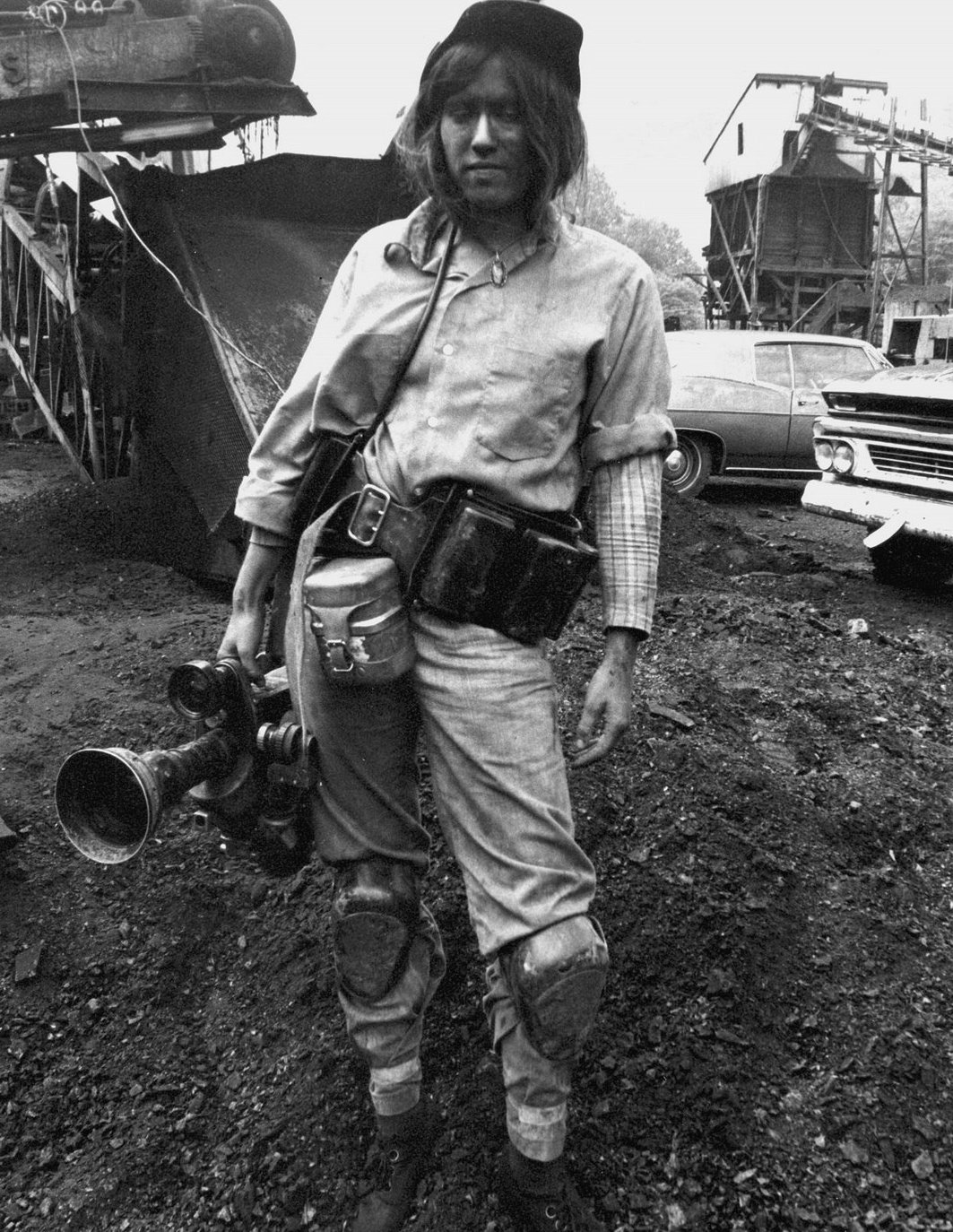Monday, April 10, 1978.
HARLAN COUNTY, U.S.A. Documentary examination of the Brookside, Kentucky coal miners strike of 1973-74. Music by David Morris. Produced and directed by Barbara Kopple. Running time: 103 minutes. General entertainment.
IN THE SUMMER OF 1973, the coal miners of Harlan County, Kentucky, voted to join the United Mine Workers of America. There were few celebrations, though.
Their employer, the Eastover Mining Company, refused to sign a contract with the newly organized local. One of the union's first acts was to call a strike.
It was the beginning of a long and bitter battle. Barbara Kopple, a New York filmmaker who had come to Kentucky to make a movie about the miners, was caught up in the drama, and she decided to see it through to the end.
As it turned out, she and her crew spent more than a year in the town of Brookside, shooting footage for Harlan County, U.S.A. Their dedication produced a tough, compassionate film, the winner of the 1976 Academy Award for best feature documentary.
The events they recorded are filled with a tragic fascination. Brookside, a shabby little company town, is owned and operated by Eastover Mining, a subsidiary of the larger Duke Power conglomerate.
"It's a feudal system," says one union organizer. At the time of the strike, housing for the employees contained no heating or plumbing.
Kopple's sympathy is clearly with the workers. Once she has established the basic setting, her film ranges beyond the immediate situation to consider the industrywide questions of mine safety and health hazards.
We learn about the crippling black lung disease, a preventable illness that many mine owners choose to ignore. We learn about a particular mine, cited several times by federal inspectors for safety violations, that exploded, killing 78 men.
Finally, we learn that in 1975 mine owners' profits were up 170 per cent, while miners' wages rose a paltry four per cent.
The fact that her film is anti-management — the owners kept the Brookside mine working by bringing in armed strikebreakers — does not make it pro-union. Kopple is no fan of the controversial UMW.
She reminds us that, while the Brookside strikers were fighting for their first contract, UMW president Tony Boyle put out another kind of contract on the reform-minded Jock Yablonsky. Boyle's hired killers, giving value for their money, also blew away Yablonsky's wife and daughter.
That was too much. Boyle lost the next union election and was subsequently convicted of murder. Meanwhile, on the Eastover picket line, a company goon emptied his shotgun into a striker named Lawrence Jones.
Jones died.
Faced with the prospect of open warfare in the streets of Brookside, Eastover Mining settled with the workers. Ironically, within a matter of months, the newly organized miners were involved in an industry-wide shutdown as the UMW took its 120,000 members out to back up new contract demands.
By refusing to identify with either the company or the union — no attempt is made to explain either side's bargaining position — Kopple is able to tell a movingly human story. Her film shows us a community trapped for generations in poverty — trapped, as well, in a vicious cycle of labour-management confrontation that four decades ago [1931] won the county the name "bloody Harlan."
Her film has no narrator. For the most part the images and the participants speak for themselves. Behind the songs, beyond the rhetoric, are the people.
Kopple's own sympathy is with the young miner's wife for whom the real issue is "hot running water and a big old bathtub."
The above is a restored version of a Province review by Michael Walsh originally published in 1978. For additional information on this archived material, please visit my FAQ.
Afterword: Harlan County, U.S.A. was No. 4 on Rod Mickelburgh’s “Top Ten List of Movies to Watch on Labour Day,” his Mickleblog posting on May 1, 2014. Mickleburgh and I are both from a time when every respectable big city newspaper included reporters whose full-time job was covering the labour beat. A former B.C. Bureau chief for the Globe and Mail, his résumé includes some 16 years on the labour beat, an expertise he developed working for The Vancouver Sun in the early 1970s. Although they may not be in his new book, I’m sure he has vivid memories of the 1978-1979 strike that shut down the Sun and Province newspapers for eight months. Published last Saturday (April 28), On the Line: A History of the British Columbia Labour Movement receives its official launch this evening (May 1), at a BC Labour Heritage Centre Society event in Burnaby. The B.C. Premier, John Horgan, will be on hand to honour the author.
